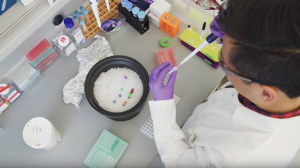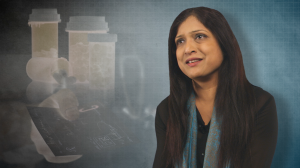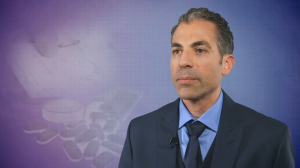NEW YORK (Reuters Health) – Acupuncture given simultaneously with radiotherapy to the head and neck reduces the development and severity of xerostomia (dry mouth) and improves quality of life, according to results of a randomized controlled study published online in Cancer.
The majority of patients undergoing radiotherapy for head and neck cancer will develop xerostomia, which often severely impairs quality of life and leads to a whole host of other problems, say researchers from The University of Texas MD Anderson Cancer Center, Houston and Fudan University Shanghai Cancer Center in China.
The use of intensity modulated radiation therapy (IMRT) has reduced the incidence somewhat, but it still remains a significant problem in 60% to 80% of patients.
Symptoms of radiation-induced xerostomia rarely improve spontaneously and treatment is largely palliative. In an email to Reuters Health, senior author Dr. Lorenzo Cohen said, “Several approaches including saliva substitutes, chewing gum, sialogogue lozenges, pilocarpine, and amifostine have been attempted with limited benefit. There are also unwanted side effects with many of these treatments.”
Dr. Cohen is professor and director of the Integrative Medicine Program at MD Anderson Cancer Center.
The current study joins several previous studies that have shown positive results with acupuncture for relieving radiation-induced xerostomia, including one reported by Reuters Health in 2009 and performed by some of the same researchers at MD Anderson. (See Reuters Health report May 5, 2009: Acupuncture relieves radiation-induced xerostomia).
The current study, however, differs from previous ones in that it explored whether acupuncture can prevent xerostomia when delivered concurrently with radiotherapy; 86 patients with nasopharyngeal carcinoma were enrolled and treated at Fudan University Shanghai Cancer Center.
Forty were randomly assigned to acupuncture given three times a week on the same days as radiotherapy and 46 to a control group. Acupuncture was performed by an experienced acupuncturist and points were selected based on previously published reports and followed traditional Chinese medicine theory.
There were no between group differences in patient age, sex, or tumor stage, or mean tumor radiation dose (70.8 and 70.9 Gy, respectively). The patients were followed for up to six months after the end of radiotherapy. Subjective measures included the Xerostomia Questionnaire and MD Anderson Symptom Inventory-Head and Neck (MDASI-HN). Objective measures were unstimulated and stimulated whole salivary flow rates.
For self-report measures and sialometry, group differences favoring acupuncture were evident as early as the third week and remained significant at one and six months after the end of radiotherapy, “even without additional acupuncture,” the investigators report.
Less than one third of patients in the acupuncture group reported clinically significant symptoms at six months, versus more than two thirds in the control group.
It’s “noteworthy,” write the researchers, that objective results supported subjective results and that significant differences in saliva flow between the two groups emerged as early as week three into treatment and remained six months later.
“Although this first study incorporating acupuncture during radiotherapy did not have a placebo control group, improvement in both subjective and objective measures suggests this treatment in more than just a placebo response,” Dr. Cohen told Reuters Health.
“The study also found an overall improvement in quality of life for patients who underwent acupuncture,” he noted.
At present, the putative biological mechanisms underlying the benefits of acupuncture on radiation-induced xerostomia are “not well understood” and need to be flushed out in further studies, the researchers say.
Regardless of the mechanism of action, however, they note that acupuncture is cost-effective, minimally invasive, and has a very low incidence of adverse effects. No adverse effects were seen in the current study, aside from mild discomfort from needle insertion in some patients.
“Although the definitive, phase III, placebo controlled trial is ongoing, clinicians should consider acupuncture during and subsequent to radiotherapy to help reduce and treatment xerostomia,” Dr. Cohen advised.
Reference:
Cancer 2011.
Published online November 9, 2011.




